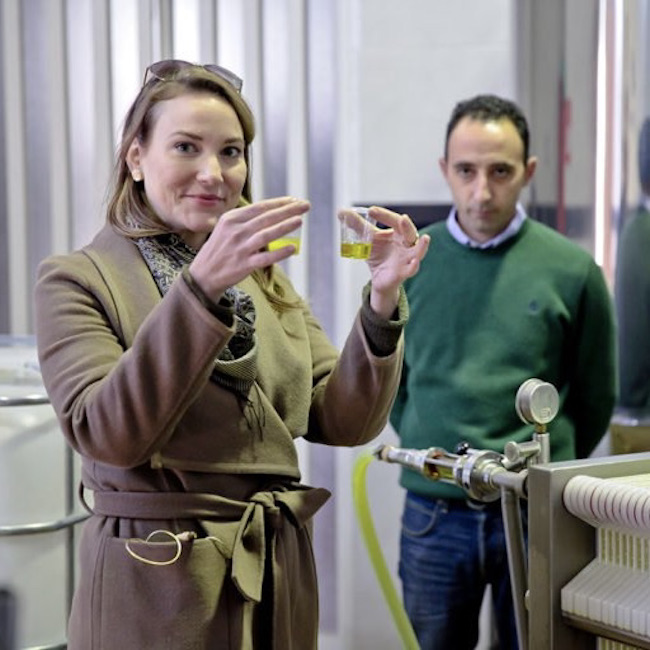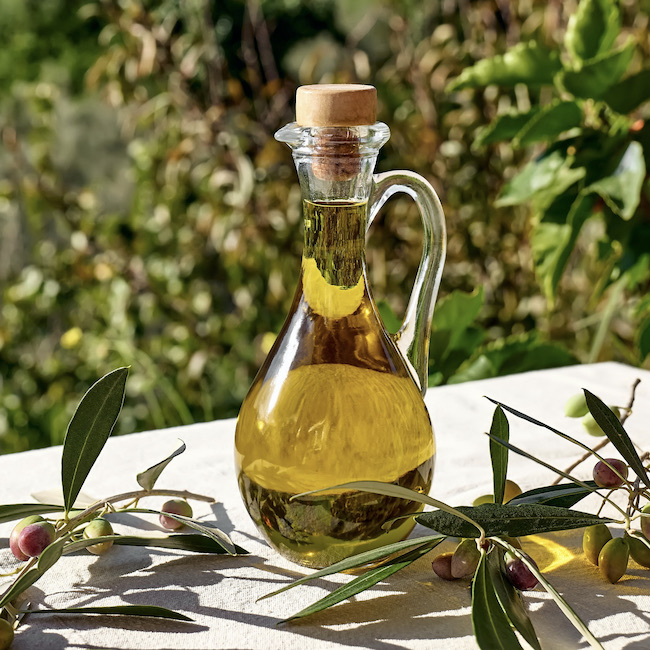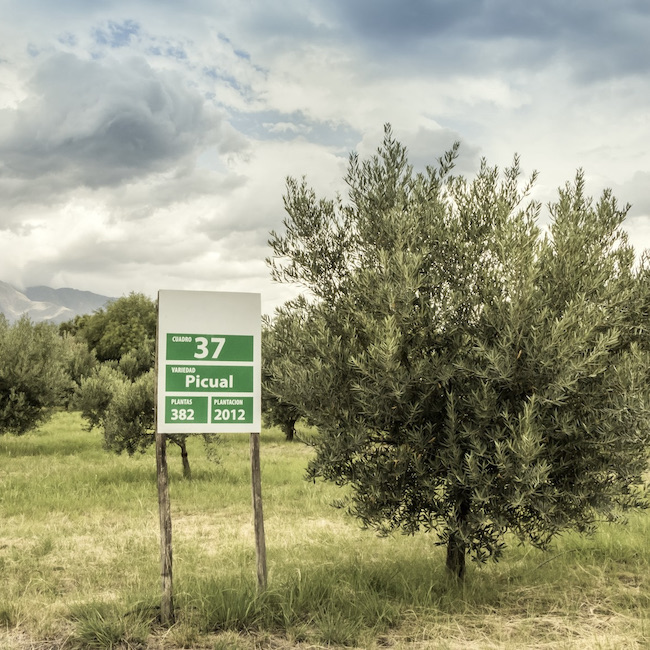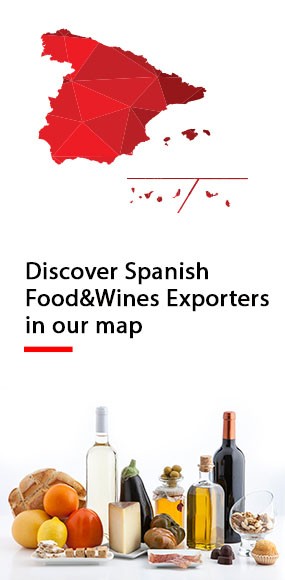.png.transform/rendition-xs/image_image%20(1).png)
Premium EVOO from the World’s Top Producer - it’s Spain!
In celebration of Extra Virgin Olive Oil day, we ask Joanne Lacina from Olive Oil Lovers about Spanish EVOO and what makes it so special.
Why buy premium Extra Virgin Olive Oil from Spain? In the spirit of Extra Virgin Olive Oil day, we spoke with Joanne Lacina, president of Olive Oil Lovers, to find out why the Spanish olive oil scene is attracting attention. Olive Oil Lovers educates consumers through videos, articles and even tasting shops, bringing awareness of the flavor profiles that are quite unique and different from one another, so let’s find out more!
What are the key Spanish olive oil varieties?
The taste of Spain’s premium olive oils is linked to their D.O. growing region, much like with wines. An early harvest, with native olive varieties and small producers - make this liquid gold.
“There are three big ones. Picual is the king, not just of Spain but the world, then Hojiblanca and Arbequina - these are the main three varieties that are unique and native to their own protected growing areas in the country. Picual, Hojiblanca and Arbequina all produce distinct aromas and flavors unlike anywhere else in the world. In fact, you could have one of each oil in your kitchen and have a well-rounded selection to cook and pair with nearly any dish.
Andalusia is the biggest region for growing olives in Spain, where the vast majority of oil in the world is produced, and Jaén in particular - being world-renowned for its Picual. Córdoba also produces some of the top Hojiblanca in the region. In Northern Spain, Catalonia is well known for the Arbequina variety - a favorite of chefs for its smoother flavor and versatility in the kitchen.
Picual being the greenest and more robust of the varieties when harvested early, produces an oil that is delightfully bitter and pungent and excellent for pairing with richly flavored dishes such as grilled meats, vegetables and hearty soups. Hojiblanca, one of my favorite varieties, is typically medium robust, and with its pronounced notes of garden tomato, make it an excellent pairing for just that – tomato salads, pan tumaca, gazpacho and many other dishes. Arbequina is more delicate, ranging from medium to delicate in intensity. It’s often ‘sweeter’ – or more fruit forward, with notes of apple and banana, making it ideal for the more delicate dishes, such as light leafy green salads or poached fish, and I personally love it with avocado.”

What is the difference between virgin and EVOO - Extra Virgin olive oil?
“In a nutshell, EVOO has to have below 0.8 free fatty acids. This number shows the integrity of the oil. It’s not something you can see or taste, but indicates the amount that the olive (the fruit) was compromised or damaged. Everything needs to be handled with care from the moment you pick the olive during harvest to how it is stored. All of this contributes to that acidity number that you’re looking at. If the olives are picked super green, they’re crushed right away and they’re handled properly with the oil stored under optimal conditions, you will have a very low (below 0.2) acidity. Most of the producers we work with are below 0.2. And the limit is 0.8 which is fairly high. So that’s one aspect of EVOO, the other consideration is that it has to have zero defects. This is one of few products where the flavor has to be organoleptically analyzed. Zero defects means it has to have some positive fruity flavor - it could be tomatoey, grassy, herbaceous, with fruit or green notes on the nose, and no negative flavors like fusty (coming from olives that were too ripe and are beginning to break down). A virgin oil is allowed to have 2.0 acidity maximum, so there’s some level of compromise there. Extra virgin is the best of the best, like a top quality fruit juice. Other than EVOO, in the US market you’ll find products like “pure olive oil” that are super-misleading and “derivative” olive oils which are not great either.”
What makes Spanish Extra Virgin olive oil unique?
“I would direct consumers to purchase oils from Spain particularly, as the country has come leaps and bounds in terms of quality in the last decade. Many producers now understand the importance of putting their utmost care into production, from harvesting to milling to bottling, to produce an oil ready for the international market. Our top selling oils are Spanish, which is surprising because when people think of olive oil they think Italy. Spain is where the vast majority of olive oils come from so it’s like a lightbulb moment for people when they realize that. I’ll never forget the first picual olive oil I tried because it has a very different flavor to what I was used to growing up with. Picual is our number one selling varietal because our customers know that it is high in polyphenols - antioxidant qualities. It has very different flavor characteristics, tomatoey flavors, spicy, pungent, peppery, which are completely different to the norm. Whereas, the arbequina variety, with not-so-high polyphenols in comparison, is smooth and fruit forward. Think dried fruit notes and banana - that’s an arbequina. It’s super versatile so chefs love to work with it as a milder oil. However with the spicy picual, you just put a few drops on the dish and you’ve elevated your game. Spanish olive oils are very unique in both flavor and benefits.”

What are your favorite things to eat with Spain’s premium Extra Virgin olive oils?
“I love pan tumaca. When I travel to Spain during the harvest season, I never get tired of that. Fresh grated tomato on fresh baked bread with a picual or hojiblanca - which is great with tomatoes - it’s the simplest food but in order to appreciate the flavors of an olive oil you want minimal ingredients to highlight it as an ingredient you can taste. I am also a big fan of octopus and grilled seafood, simply prepared as is really common on the Mediterranean and in Spain. Just grill fresh shrimp, octopus or sardines, with that char which is slightly acidic, and then pair it with a drizzle of slightly spicy picual olive oil - it takes it to the next level. If you’re not putting olive oil on your seafood I don’t know what you’re doing! Finally, I’d say pasta, because a delicious bowl of pasta only calls for a good olive oil. Just boil up some good pasta, grate some fresh cheese, a nice olive oil and some fresh cracked pepper - it’s all you need.”
Why is Spanish Extra Virgin olive oil a must in your kitchen?
“Number one, it is absolutely the healthiest oil you can have in your kitchen, there is no other oil that even compares in terms of health benefits and flavor. It is a fruit juice with a flavor, it will elevate whatever you’re cooking, there are few other oils that will do that. You can cook with it and you can also dress dishes with it. Everyone should have at least two olive oils in their kitchen, something of good value that you can use for everyday use, and then at least one - but you should have three (!) - really good finishing oils.”

And finally, what should we consider when choosing premium Extra Virgin Olive Oil? Can you give us some recommendations?
“Freshness - olive oil is a fruit juice, and it needs to be thought of that way. Make sure it is from the most recent harvest, so you’ll get the best flavor, then you want to store your oil properly, it’s not something to be saved for later. It is meant to be consumed when fresh. Olive oil doesn’t “go bad” but it does lose its flavor after it is open. A common mistake that friends make is that they keep hold of the expensive oils. Like a fruit juice, you need to consume liberally and…enjoy it!
I highly recommend oils from Oro Bailén, located in Andalusia, where the Picual olive reigns King. Oro Bailén was one of the first producers to harvest this variety while still vibrant and green and has since become one of the best oils in the world, year after year.
I also highly recommend the organic oils of Oro Del Desierto located in the Tabernas region of southern Andalusia, a dry desert region known for producing oils of exceptional quality and high polyphenols. Their family-run operation takes great care to ensure their quality is consistently high and has grown to be an international favorite among consumers.
Almazaras de la Subbética near Córdoba also produces one of the world’s top organic Hojiblanca oils, their Rincón de la Subbética, that wins many international awards each year.”

